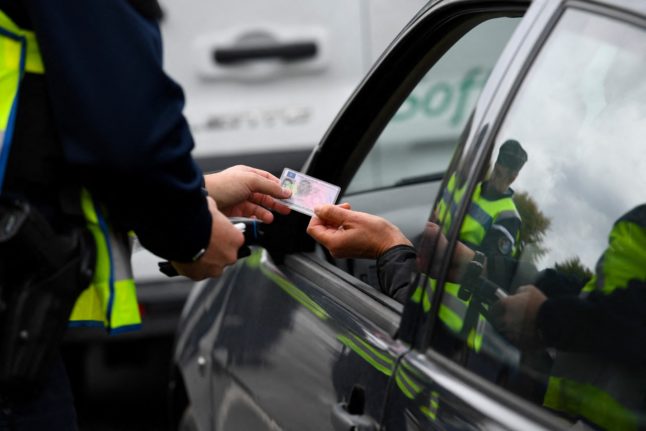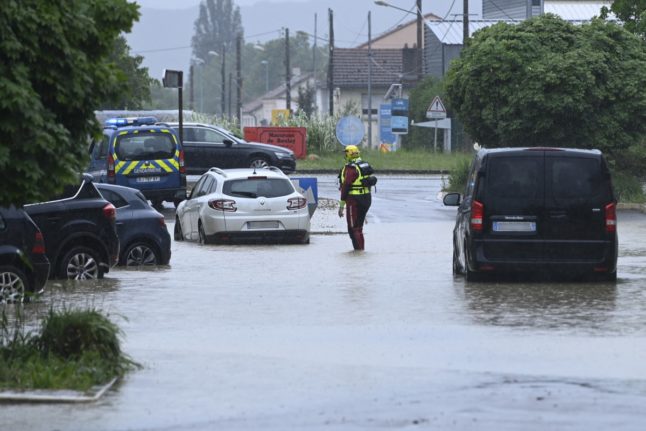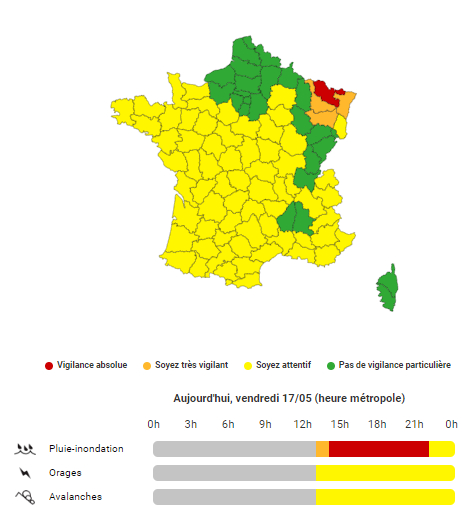Travelling within France
If you are travelling within mainland France then you obviously don’t need travel documents, however you might need some proof of ID.
Within France it’s a good idea to carry ID in case of a random police stop (contrôle d’identité). You can use a passport, driver’s licence (with photo) or residency permit to prove your identity in this situation. Although it’s not a legal requirement to have ID with you, it can make any kind of check more time-consuming and annoying if you don’t.
Do foreigners in France have to carry their residency permits?
There are other situations while in France that you might need to prove your ID – including registering for healthcare, submitting your first tax return or buying or renting property. For these purposes, you can use either a national identity card (if your country has one), a passport, driver’s licence delivered in an EU country, or a long-term or temporary EU residency permit/ visa.
READ MORE: EXPLAINED: How to officially prove your ID and address in France
Travelling outside France, but within the EU/Schengen Zone
However, if you are travelling outside France as a French resident, though within Schengen zone, then the rules are a little different.
If you are a citizen of an EU country, your EU passport or ID card (if your country issues them) acts as proof of your right to travel freely within the Bloc.
If you are a national of a non-EU country, then you should carry both your passport and carte de séjour/visa.
Technically, your French residency card (carte de séjour) is not an official travel document. For these purposes, you will need to bring your passport.
In practice, checks at internal EU/Schengen borders are relatively rare, but you should still have both documents with you.
If you are checked when re-entering France, make sure to show both your passport and carte de séjour, in order to avoid having your passport stamped as a visitor.
If your French carte de séjour has expired and you have applied for a new one – and you have a récépisse as proof of your application – then you can use this for travel. The récépissé must always be accompanied by your previous card, which together prove to border control that you have a right of residence in France.
However, the récépisse is not an official travel document, so you will still need to use your passport for travel.
READ MORE: Can I travel if my French carte de séjour has expired?
Do I need a visa to visit another EU country?
Your French carte de séjour gives you the right to unlimited stays in France – but it doesn’t allow you to settle in another EU country (unless you have the specific long-stay EU residency permit).
However, you can travel freely within the Schengen zone provided you have a valid passport plus a titre de séjour or visa of at least one year’s duration.
Most countries regard stays of 90 days or less as ‘visits’ – for longer stays you may need a visa.
What other documents might I need?
It’s not compulsory, but it is wise to carry along a proof of health cover, in case of emergency.
For most people who are registered in the French health system, this would be your European Health Insurance Card, known as the CEAM (Carte Européenne d’Assurance Maladie), which would cover you for all trips within the EU, the EEA and Switzerland.
If you don’t have this card, you can request it via your online Ameli account or from your local CPAM office. Remember that this card only lasts for two years, so check the expiry date and order a replacement via Ameli if necessary.
If you’re not registered in the French system, you would need proof of health or travel insurance.
If you are planning to drive, then you will also want to bring your driving licence and vehicle registration documents (if you’re taking your own car).






 Please whitelist us to continue reading.
Please whitelist us to continue reading.
Member comments